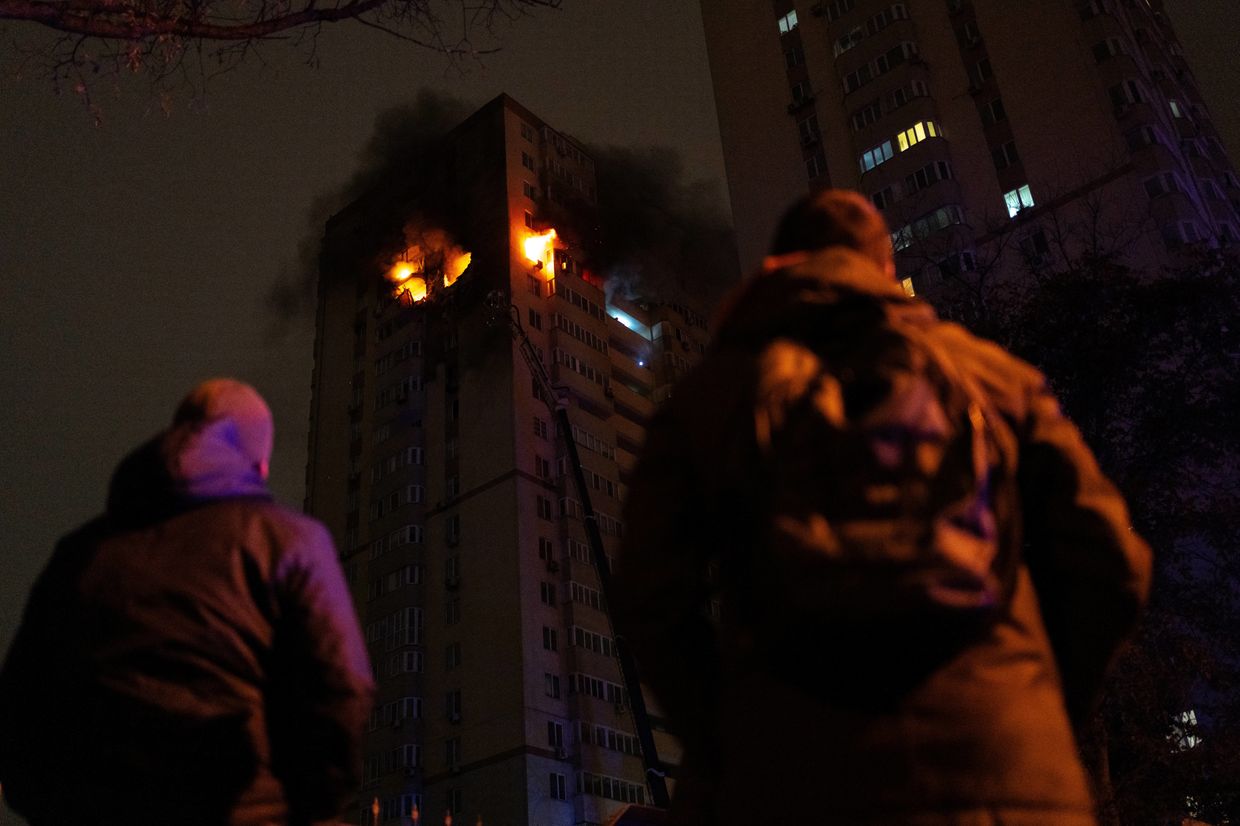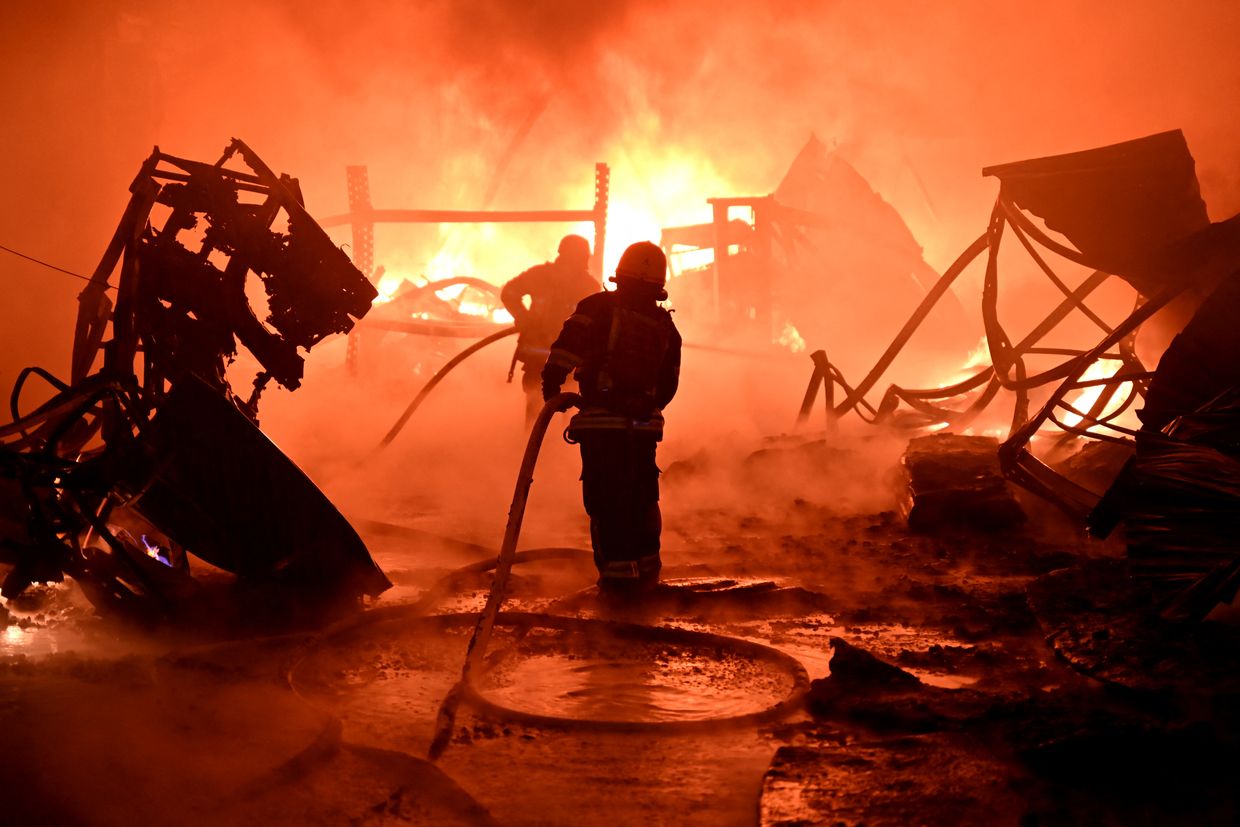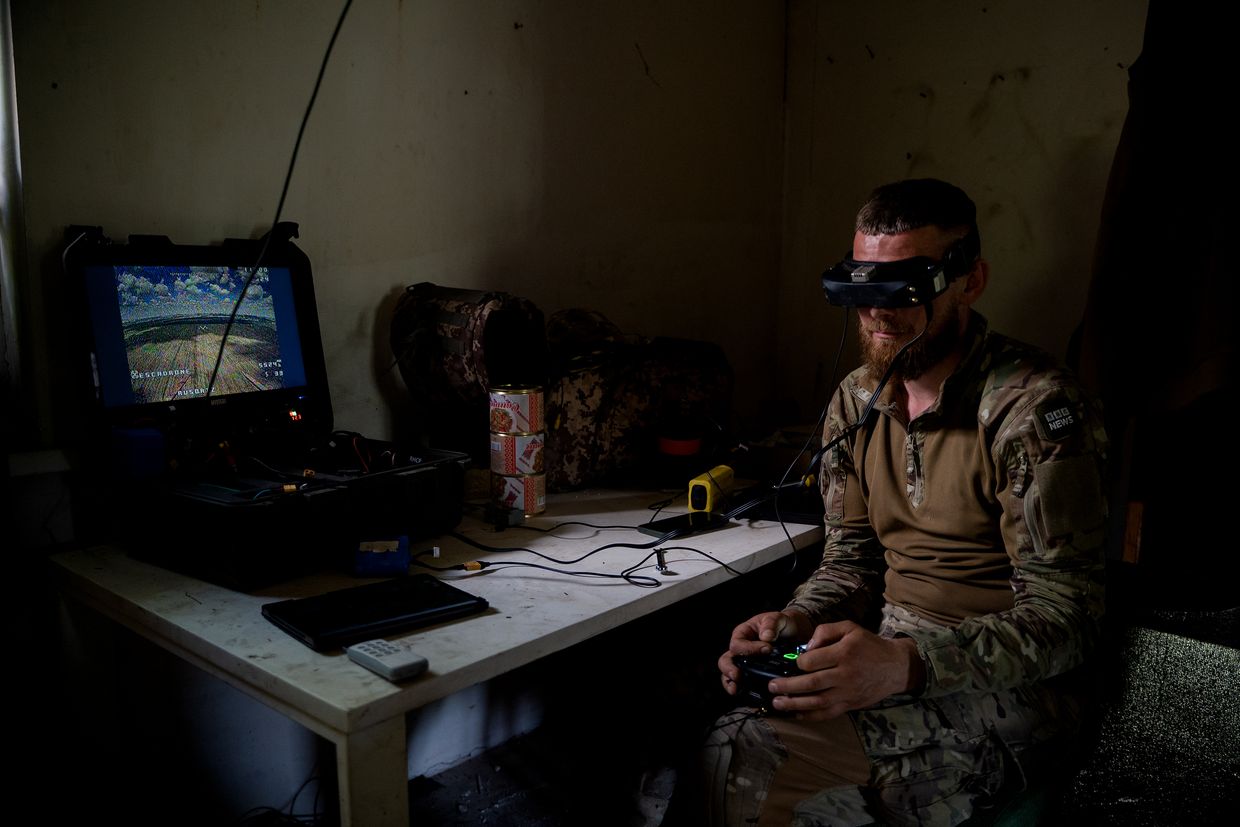Editor’s note: This article was originally published in the Israeli investigative outlet Shomrim. The Kyiv Independent is republishing it with permission.
After Israeli officials earlier ignored Ukrainian warnings and offers to help counter the threat of Iranian drones, the tides appear to be turning as Israel faces increased drone attacks amid escalating tensions in the region.
After talking with dozens of officials and key individuals in the defense technology sector, Israeli investigative outlet Shomrim has found that contacts and early signs of collaboration are emerging in this field. Israeli defense tech companies are seeking proven solutions that have been tested in real combat situations.
Shomrim and N12 revealed earlier this year that long before the Hamas attack on Israel on Oct. 7, Ukrainian officials had reached out to their counterparts in Israel to share their experience countering the threat of Iranian-made drones since Russia began using the weapon against Ukraine in 2022.
A former senior Ukrainian official said that at least one Ukrainian company developing anti-drone technology sent representatives to Israel before the outbreak of the war in Gaza — but could not find a single counterpart from the defense sector in Israel willing to meet with them.
“Not a single company agreed to meet with them at their office,” said the former official, who agreed to speak on condition of anonymity to discuss the private conversations. “Someone did agree to meet with them at a fast-food restaurant and I believe that was the only meeting. It was a humiliating experience.”
Both current and former Israeli and Ukrainian officials said that Israel paid a heavy price for dismissing those warnings.
The Iranian-made drones that are being launched at Israel from Lebanon, Yemen, Syria, Iraq, and Iran itself have led to casualties, destruction, fires, and panic and are now the main challenge currently facing Israel’s aerial defense systems.
The extent of the threat was underscored by the drone that hit and damaged the private residence of Israeli Prime Minister Benjamin Netanyahu in Caesarea.
The Ukrainian companies, for their part, are hoping to grow and profit from the Israeli companies’ international contacts. Ukraine gained experience from almost three years of war, with over 7,000 drones launched from Russia into Ukraine since the beginning of 2024, including about 2,000 in October alone.


For comparison, the Israeli army recently reported that since Oct. 7, 2023, about 1,300 drones have been launched against Israel from all fronts combined: Lebanon, Gaza, Iraq, Syria, Yemen and Iran.
The war against Russia, together with large investments from both the private and public sectors, has turned Ukraine into a hotbed of global innovation when it comes to the defense tech sector, with a proliferation of companies offering groundbreaking solutions to identify and intercept drones.
The industry has attracted the attention of Western nations, including private companies. Some firms have opened business offices in Ukraine, while others have forged close ties with Ukrainian companies.

A network of acoustic sensors to detect drones
Russia’s invasion of Ukraine in 2022 led to an exponential and fast-paced development of the Ukrainian defense industry, said Olena Bilousova, a senior researcher at the Kyiv School of Economics (KSE).
When Ukraine first started dealing with the challenge posed by drones from Russia, it set up a dedicated national industry, spearheaded by its Digital Transformation Ministry, to find a solution. There are now more than 200 Ukrainian companies working in the field.
“As far as military companies are concerned, there is nowhere in the world like Ukraine, since it offers them an opportunity to test their products on the battlefield against an enemy as mighty as Russia, which also has advanced technologies,” said Bilousova.
Zvook, a ground-breaking Ukrainian start-up in the field of AI-powered acoustic detection of incoming drones, missiles, and other aerial threats, is among the companies establishing ties with Israeli partners.
There is nowhere in the world like Ukraine, since it offers them an opportunity to test their products on the battlefield against an enemy as mighty as Russia, which also has advanced technologies.
Maryan Sulym, head of Zvook and a Ukrainian military air defense sergeant, said that his company relies on small acoustic sensors the size of a small box placed on cellphone towers and in hidden locations along the front line. Each sensor can detect Iranian Shahed drones within a range of three to five kilometers and cruise missiles within five to seven kilometers.
Today, Sulym said, Zvook’s network covers about 5% of the territory of Ukraine — an area larger than the whole of Israel. The data collected from the sensors is impressively accurate, with false positive rates of only 2.5%.
According to Sergeant Sulym, Zvook’s innovative approach has attracted attention from international actors, including NATO countries. U.S. Air Force General James Hecker, commander of U.S. air operations in Europe, recently commended Ukraine's acoustic detection systems, highlighting how these low-cost devices — about a thousand dollars per sensor — can accurately gauge the speed, direction, and velocity of incoming drones.
Zvook has also attracted interest in Israel and has been approached by at least three Israeli defense technology firms. One of the inquiries was made in recent weeks, shortly after a drone crashed into the Israeli Prime Minister's residence. Representatives of this Israeli company are set to visit Ukraine in the near future, in order to closely examine Zvook’s acoustic technology.
Another meeting was held last month online, between a Ukrainian company specializing in first-person-view drones and robotics and a group of Israeli entrepreneurs in the security field.
It is not yet known whether the meeting will lead to actual contracts, but one of the participants in the call said that there was a definite interest in the transfer of knowledge and that the Israelis asked the Ukrainian entrepreneur numerous questions concerning, among other things, Ukrainian efforts to intercept Iranian Shahed drones, according to the paricipant, who agreed to speak on condition of anonymity to freely discuss the call.
Introducing official merch
from the Kyiv Independent
Inflated expectations in Israel
Vladimir Davidoff, founder and CEO of Dronex Israel, which manufactures reusable interceptor drones, cautions that the technologies developed by Ukrainian companies are not necessarily suitable for Israel's needs.
“In Ukraine, response time from detection to action can be hours, whereas here in Israel, we have minutes or even seconds,” he said, due to the vast size difference between the two countries.
The Ukrainian experience can still prove meaningful, according to Davidoff. The lack of direct encounters with drones in real combat situations has proven detrimental to the Israeli Defense Force’s readiness against drones, Davidoff said.
“You can only be certain your system works after it is tested in real combat conditions," said Davidoff. "In Israel, our expectations (about how well it was protected from drones) were somewhat inflated, and we need more solutions specifically tailored to the complexities of drone threats.”
Davidoff is well acquainted with the war zones in both Israel and Ukraine. He worked in Ukraine after the start of the Russian full-scale invasion and redirected his company's activities to the defense sector.
He recently relocated his activity in Israel, and has been working alongside MAFAT — the IDF’s Directorate of Defense, Research, and Development — while relying on his experience in Ukraine and the knowledge he acquired there.

One of his companies, which operates in Europe, recently concluded an agreement and bought samples from a Ukrainian manufacturer of acoustic sensors that operates from another nearby country in Europe. He did not name the country, citing security concerns.
"If the sensors pass tests in Israel, we can produce them together in Israel," he said, in an example of direct cooperation between Ukrainian and Israeli defense companies.
The cooperation between Davidoff’s firm and his Ukrainian counterpart illustrates a type of circumvention that Ukrainian companies are currently employing given Ukraine's ban on military exports since the outbreak of the war. Ukraine adopted this ban to ensure that all available Ukrainian weaponry would be used against the Russian invasion.
According to Bilousova of KSE, more and more Ukrainian companies are already circumventing the export ban by transferring production to other countries and opening their headquarters in countries close to Ukraine, such as Poland and Estonia.
The Ukrainian government has recently indicated that it may be willing to overturn the ban and allow arms exports, including anti-drone systems. This could pave the way for broader cooperation between Ukrainian companies and Israel.
‘The cooperation should have started long ago’
Yevhen Korniychuk, Ukraine’s ambassador in Israel, confirmed the ongoing cooperation between Israel and Ukrainian companies but declined to go into details, citing the sensitivity of the subject.
“Israeli private companies and state defense firms are quite actively communicating with their Ukrainian counterparts right now,” he said.
In this context, Elbit, one of Israel’s largest military companies, was mentioned by Korniychuk. Ukraine’s ambassador helped introduce Elbit representatives to officials from the Ukrainian Defense Ministry.
Another Israeli company is R2, which has developed a product for identifying and locating drones and is taking part in exercises with NATO. R2 is currently in touch with Brave1, a Ukrainian government platform whose purpose is to test and develop advanced military technology.
Western governments usually tend to encourage and support such collaborations between private defense companies in their countries and Brave1, but the CEO of the Israeli company noted that the connection to the Ukrainian platform has been made independently and without the involvement of the IDF or the Defense Ministry.
The Ukrainian ambassador describes the cooperation between Ukrainian and Israeli firms as a force multiplier, emphasizing that this synergy should have been initiated long ago.
“One plus one—Israel plus Ukraine—equals three or four, not two. Israel brings technological knowledge as well as access to American technologies. We have vast combat experience. We need to combine all of that, of course. This cooperation should have taken place long ago,” the ambassador said.














